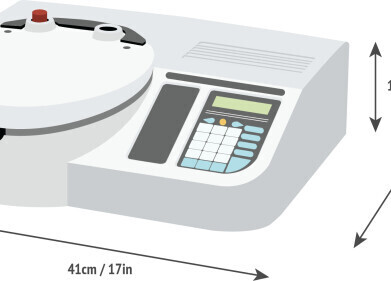Chromatography
Are the Days Getting Longer?
Dec 27 2016
There’s no arguing with the fact that 24 hours is the widely-accepted definition of a full day. Or for linguistic buffs, the term ‘nychthemeron’ may be more suitable. Either way, astronomers are claiming that after comparing more than 3000 years of celestial records, the length of a day on planet Earth has been steadily increasing since the beginning of time. At a rate of two milliseconds a century, to be precise.
So what’s causing the days to get longer? Researchers from Durham University and the UK’s Nautical Almanac Office are putting it down to the gradual slowing of Earth’s rotation, which is caused by subtle changes in the planet’s sea levels and electromagnetic forces. As the planet’s rotation slows, it lengthens a day on Earth by two milliseconds per century.
The concept of longer days is fascinating, but in the grand scheme of things the scientists stress that earthlings shouldn’t expect drastic changes anytime soon. In fact, two million more centuries will need to elapse before a day on Earth clocks in at 25 hours.
Right down to the last millisecond
The observation is incredibly precise, which has led to questions over whether the study is legitimate. The astronomers are adamant their findings are genuine, and draw on celestial data gathered from between 720BC to 2015. Referencing everything from ancient Babylonian clay tablets and early Greek texts to archaic Chinese scripts and medieval European records, the researchers put together a celestial calendar covering a 2,735-year period. They then ran the historical records through a computer algorithm that calculated when notable celestial events like eclipses should have occurred if the Earth’s rotation speed had remained constant.
“Even though the observations are crude, we can see a consistent discrepancy between the calculations and where and when the eclipses were actually seen,” comments Leslie Morrison, one of the team’s leading astronomers. “It means the Earth has been varying in its state of rotation.”
A collision of old and new
“In many ways this is an amazing result that ties together a wide range of investigations at opposite ends of the scale of technological sophistication to determine to high precision an extremely small effect,” he added.
New technologies are empowering scientists with the capacity to make incredible observations. But could it be counterproductive? ‘Data: Do We Have Too Much of a Good Thing?’ explores whether advancements translate to a loss of knowledge, due to the sheer scope of the management and evaluation process.
Digital Edition
Lab Asia Dec 2025
December 2025
Chromatography Articles- Cutting-edge sample preparation tools help laboratories to stay ahead of the curveMass Spectrometry & Spectroscopy Articles- Unlocking the complexity of metabolomics: Pushi...
View all digital editions
Events
Jan 21 2026 Tokyo, Japan
Jan 28 2026 Tokyo, Japan
Jan 29 2026 New Delhi, India
Feb 07 2026 Boston, MA, USA
Asia Pharma Expo/Asia Lab Expo
Feb 12 2026 Dhaka, Bangladesh




















